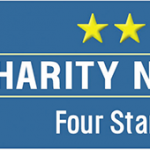(Reuters Health)—Many patients who receive assistance from charities set up to defray prescription drugs costs may already have insurance that covers most the cost for their medications, a U.S. study suggests.
Researchers examined data on the six largest independent charities offering patient assistance programs through 274 different disease-specific programs. These programs had total revenue ranging from $24 million to $532 million and expenditures on patient assistance ranging from $24 million to $353 million in 2017.
Nearly all of the programs—97% of them—only helped patients with health insurance, typically by covering the cost of out-of-pocket expenses like co-payments or by contributing to premiums.
“The current findings show that they exclude people that do not have health insurance coverage, they cover almost every one of the people with health insurance [only the very wealthy do not qualify], and that the more expensive the drug the more likely it will be covered,” says Gerard Anderson of Johns Hopkins Bloomberg School of Public Health, Baltimore, senior author of the study.
Federal health programs, including Medicare and Medicaid, don’t allow pharmaceutical companies to sponsor drug-specific patient assistance programs for the medicines they make because this violates anti-kickback regulations, researchers note Aug. 6 online in JAMA.1 But federal rules still let companies financially support charities focused on diseases that are treated by drugs they sell.
In the study, researchers examined data on eight independent charity organizations that offer financial assistance to patients and had annual revenue of at least $10 million in 2017.
Overall, 61% of the charity organizations only offered patients help with co-payments, while another 33% allowed patients the option of getting help with co-pays or monthly insurance premiums. Another 3% of the programs only offered premium assistance.
Only 3% of the programs were limited to patients with annual income up to 300% of the federal poverty level, or $36,420 for an individual and $75,300 for a family of four. Another 43% of programs were open to people up to 400% of the poverty level, or $100,400 for a family of four; an additional 51% of programs covered people up to 500% of the federal poverty level, or 125,500 for a family of four.
The majority of these assistance programs covered diseases that are often treated with expensive injected drugs made from living cells. About 41% of the programs targeted cancer and 34% aided people with rare or genetic disorders.
The researchers didn’t know the actual dollar amounts disbursed to patients for specific drugs, or the amount of prescription drug use that was enabled by the programs. They also lacked data on any assistance decisions made for individual patients who applied for help.



